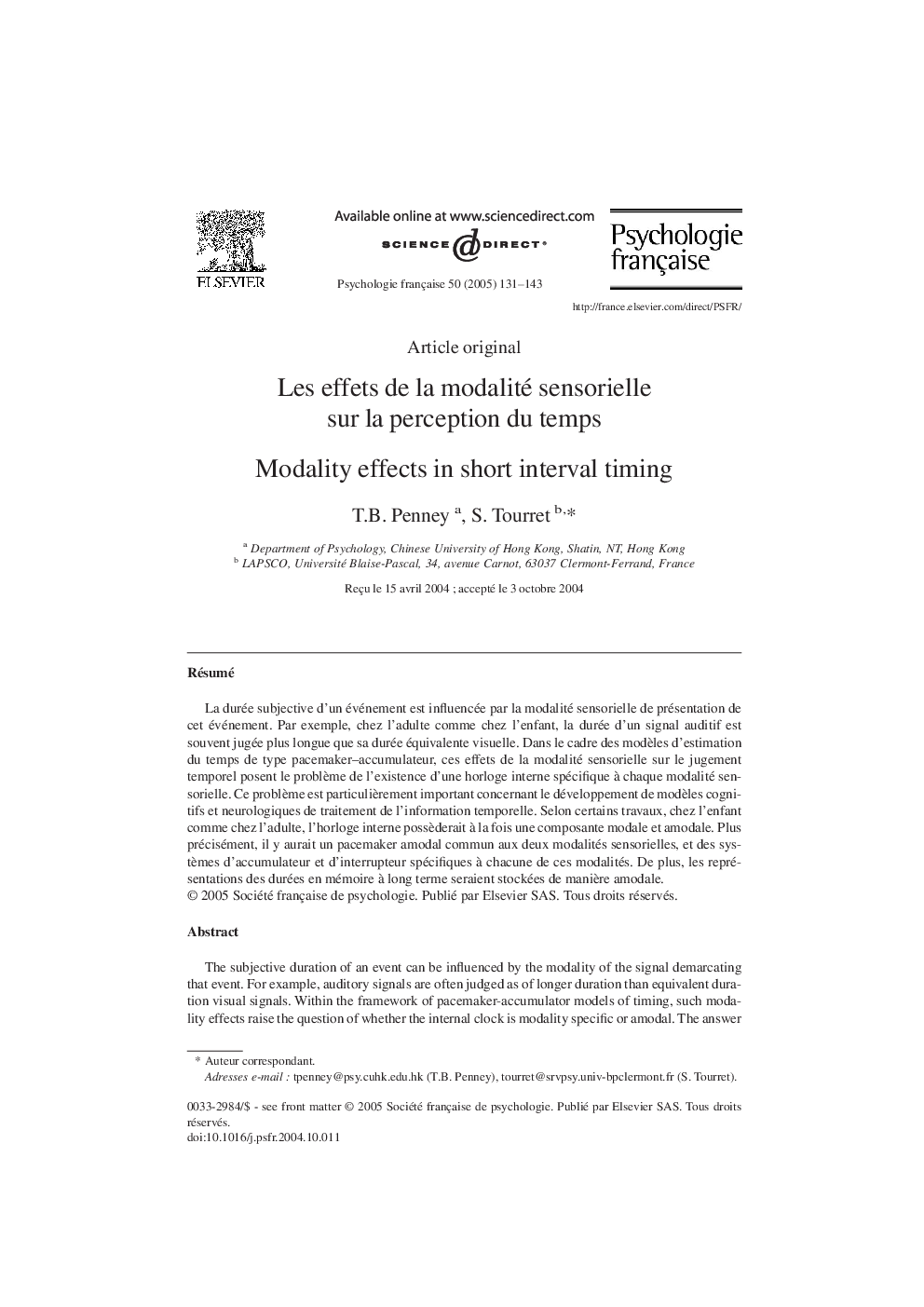| Article ID | Journal | Published Year | Pages | File Type |
|---|---|---|---|---|
| 10306721 | Psychologie Franaise | 2005 | 13 Pages |
Abstract
The subjective duration of an event can be influenced by the modality of the signal demarcating that event. For example, auditory signals are often judged as of longer duration than equivalent duration visual signals. Within the framework of pacemaker-accumulator models of timing, such modality effects raise the question of whether the internal clock is modality specific or amodal. The answer to this question is quite important for the development of cognitively and neurologically realistic models of timing and time perception. Here, we argue that the internal clock has both modality specific and amodal components. Specifically, we claim there is a common amodal pacemaker, but the switch-accumulator systems are modality specific. Moreover, we also posit that long-term memory representations of duration are stored amodally.
Related Topics
Social Sciences and Humanities
Psychology
Psychology (General)
Authors
T.B. Penney, S. Tourret,
